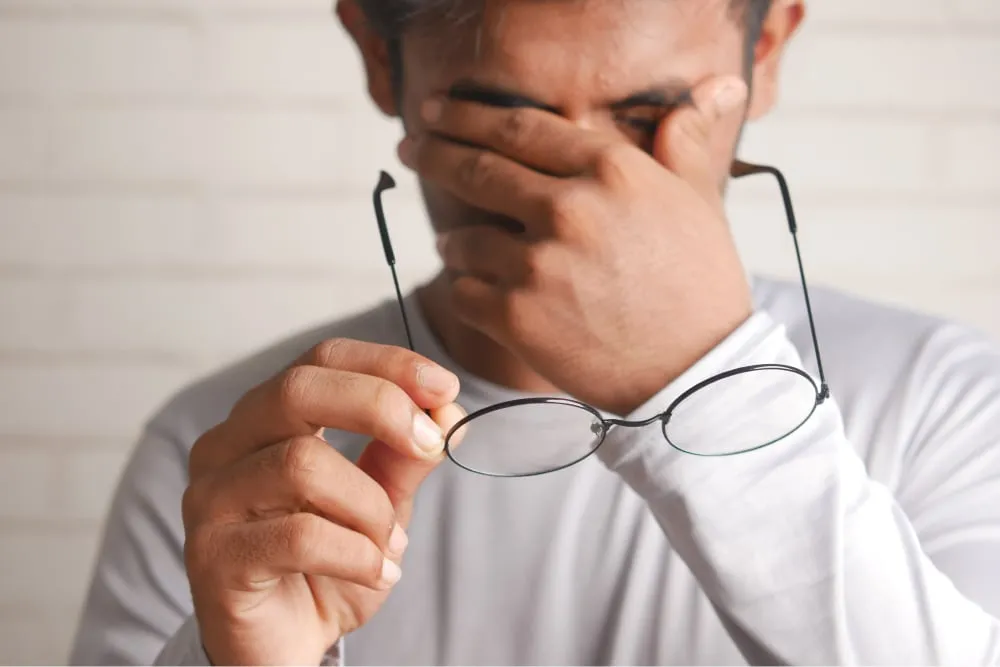How anorexia and hair loss are related
Anorexia nervosa can lead to eating disorder-related hair loss, through the changes incurred in the body during periods of starvation.
For the body to operate properly when it is starved of energy in the form of calories and essential nutrients, it slows down non-essential functions in order to survive. For example, to conserve or generate enough energy for something like keeping the cardiovascular system operating, the body will redirect energy that would otherwise go toward growing hair. This can not only lead to hair loss, but to hair thinning, or dry, brittle hair in people who struggle with AN.1
Anorexia nervosa can also lead to hair loss from specific nutritional deficiencies that stop the hair from growing as usual.
A wealth of research has shown that malnutrition and undernutrition can impair hair structure and lead to a number of related issues, such as hair loss, thinning hair around the top of the head, general alopecia, male-pattern baldness, female-pattern hair loss, and alopecia areata, which occurs when the immune system attacks hair follicles.2 Since AN often involves a severe restriction of food intake, individuals with this eating disorder are more likely to develop these types of deficiencies, and potentially experience related hair loss.
{{link-bank-two-column}}
How to regrow hair after anorexia hair loss
Frequently, hair loss reflects the state of someone's physical health, and this is also true for people who struggle with AN. Fortunately, the dry hair, hair loss, and thinning hair that occurs with anorexia nervosa and other common eating disorders is often not permanent.
When a person consumes a healthy diet composed of adequate calories and essential nutrients, hair growth generally will restart, and continue as normal. In some cases, nutritional supplementation may be needed to kick-start or support this regrowth process.
But in any case, dietary supplements alone are not likely to promote hair growth without the proper amount of calories in a daily diet. Reaching this caloric baseline can help give your body the energy it needs to carry out all functions, so it can once again direct the appropriate vitamins and minerals toward other activity, such as growing hair.
Hair care products & supplements
If you're trying to restart hair growth while recovering from AN, binge eating disorder (BED), bulimia nervosa (BN), or other eating disorders associated with hair loss, certain hair care products may be able to help.
Consulting with a dermatologist or hair care professional may help point you in the direction of the best product for you. But in general, you may want to avoid products that contain high levels of selenium, vitamin A, and vitamin E, as these nutrients have actually been linked to hair loss, despite their presence in a number of supplements.2
To help strengthen hair follicles, build hair structure, and facilitate growth, it is also important to have an adequate intake of vitamins, minerals, and proteins.
Riboflavin (vitamin B12), biotin, folate (vitamin B9), iron, zinc, and fatty acids, such as omega-6 and omega-3, have all been associated with hair health.2,3 Though, research has generally focused on the absence of these minerals leading to hair loss, as opposed to their addition to someone's diet bringing on healthy hair growth.
Lifestyle changes and other solutions
Certain lifestyle changes may also be able to help promote hair regrowth.
Stress—and, particularly, its byproduct, cortisol, the body's most major stress hormone—have long been linked to hair loss, hair whitening, and overall poor hair health.4
Getting adequate sleep and practicing mindfulness and other stress-reducing activities may help limit the effects of stress on the hair by lowering the levels of cortisol in the body.
Other strategies for promoting hair health include limiting your use of hair styling products, particularly those that are made with harsh chemicals; dying your hair infrequently; and limiting how much you blow-dry, straighten, or otherwise introduce heat sources to your hair.
Get help for anorexia today
Asking for help is the first step. The seasoned team of eating disorders experts at Within Health is here for you. Contact us to learn more about our virtual care programs for anorexia nervosa and other eating disorders.
Call (866) 293-0041 How to stop hair loss after anorexia
Most hair loss related to anorexia nervosa and other eating disorders is not permanent. In a majority of cases, finding proper eating disorder treatment should help hair growth and hair health get back on track.
The kind of nutritional foods and dietary supplements which generally assist with hair growth are often part of a broader treatment plan for anorexia nervosa and other eating disorders.
If you continue to see hair loss throughout your AN recovery journey, you may want to speak to a dermatologist or a nutritionist. It's possible that continued nutritional deficiencies or other factors could be contributing to the issue.
Generally, though, the best tool at your disposal is patience. It may take some time for hair to return to its former length, color, thickness, or health, but generally, adopting a wholesome diet, abundant in vitamins and minerals, fatty acids and protein is achieved, should help.
Finding treatment for anorexia nervosa
Anorexia nervosa is a serious mental health condition that can have life-threatening consequences and lead to severe medical problems, including irregular heartbeat, muscle weakness, low blood pressure, and even heart failure.5 If you or a loved one are struggling with AN or other forms of disordered eating, it's crucial to seek out help.
A complete medical evaluation can help determine which treatment approaches may best address your needs and facilitate a full recovery. Individual therapy, nutrition counseling, medication, and group therapy have all been found to help people repair their relationships with food, eating, and their body.6
You might be interested in









































